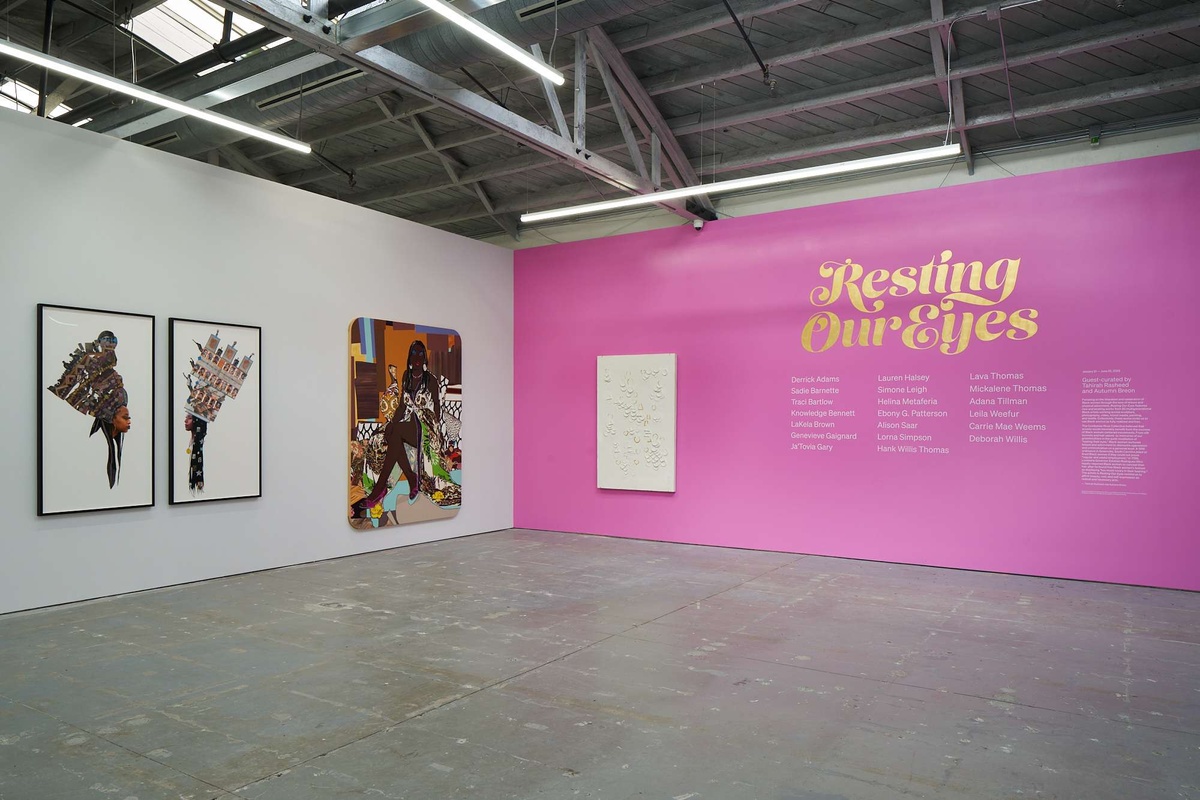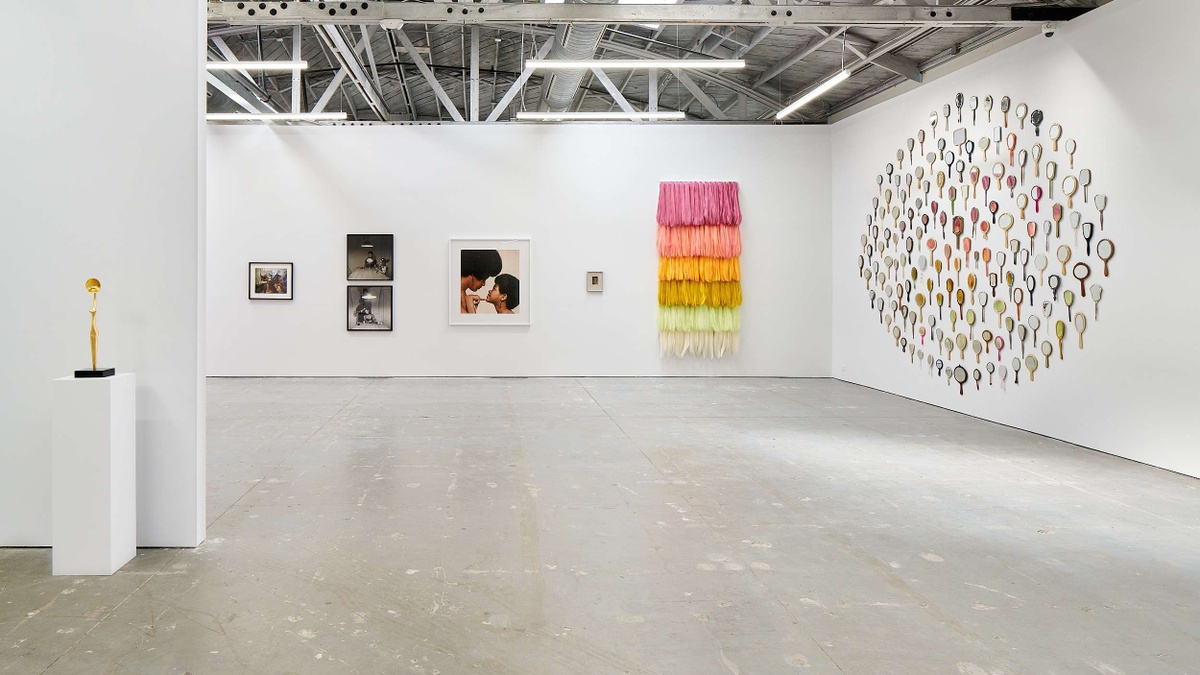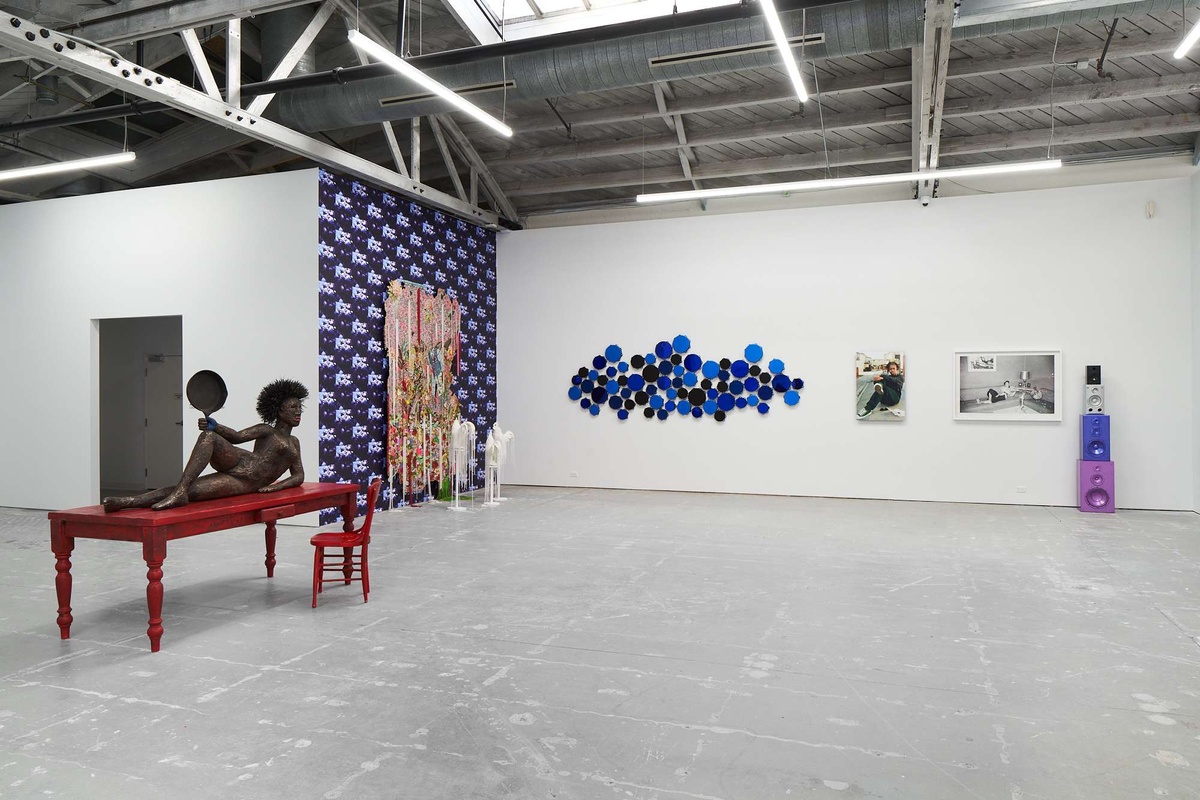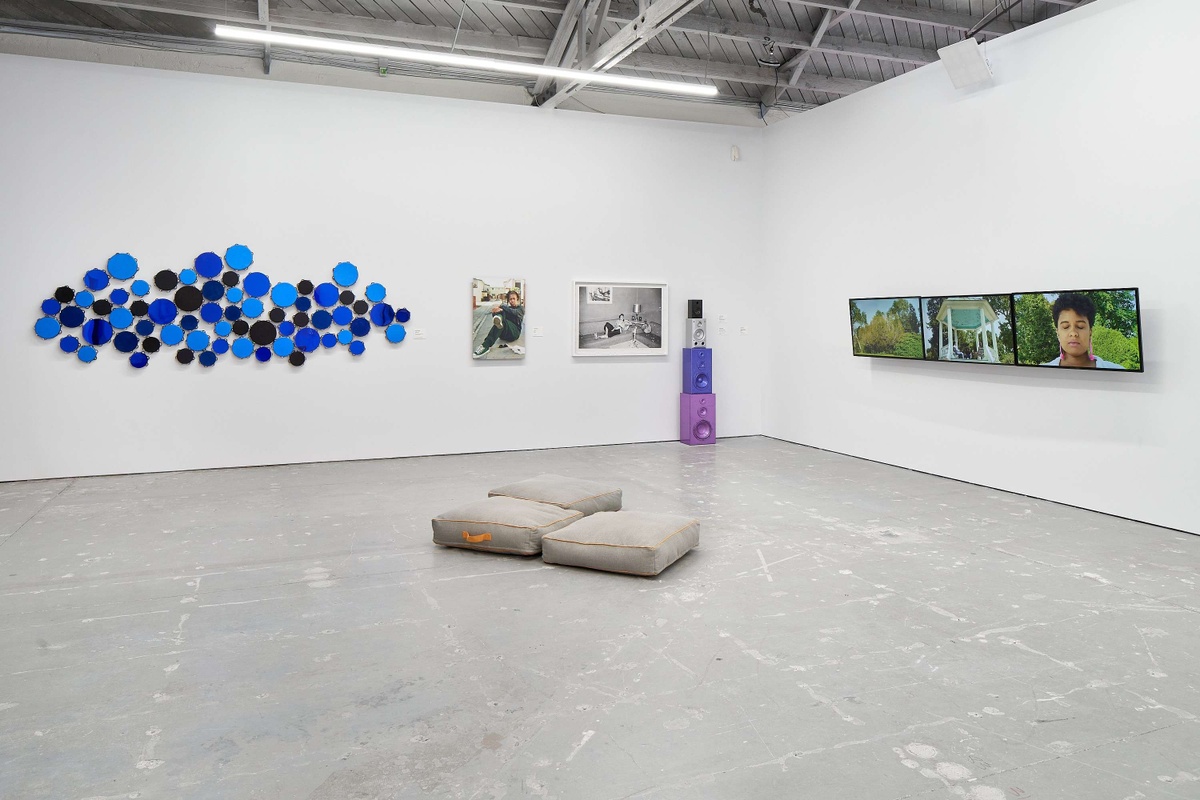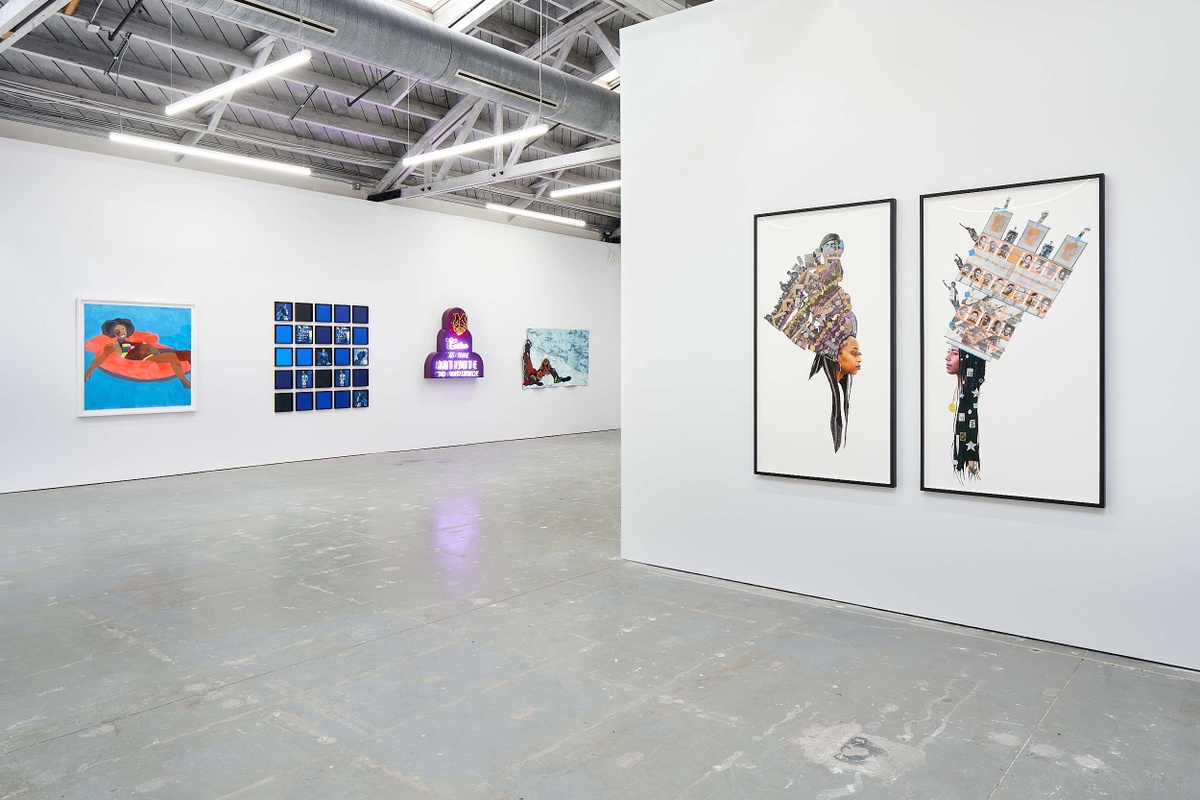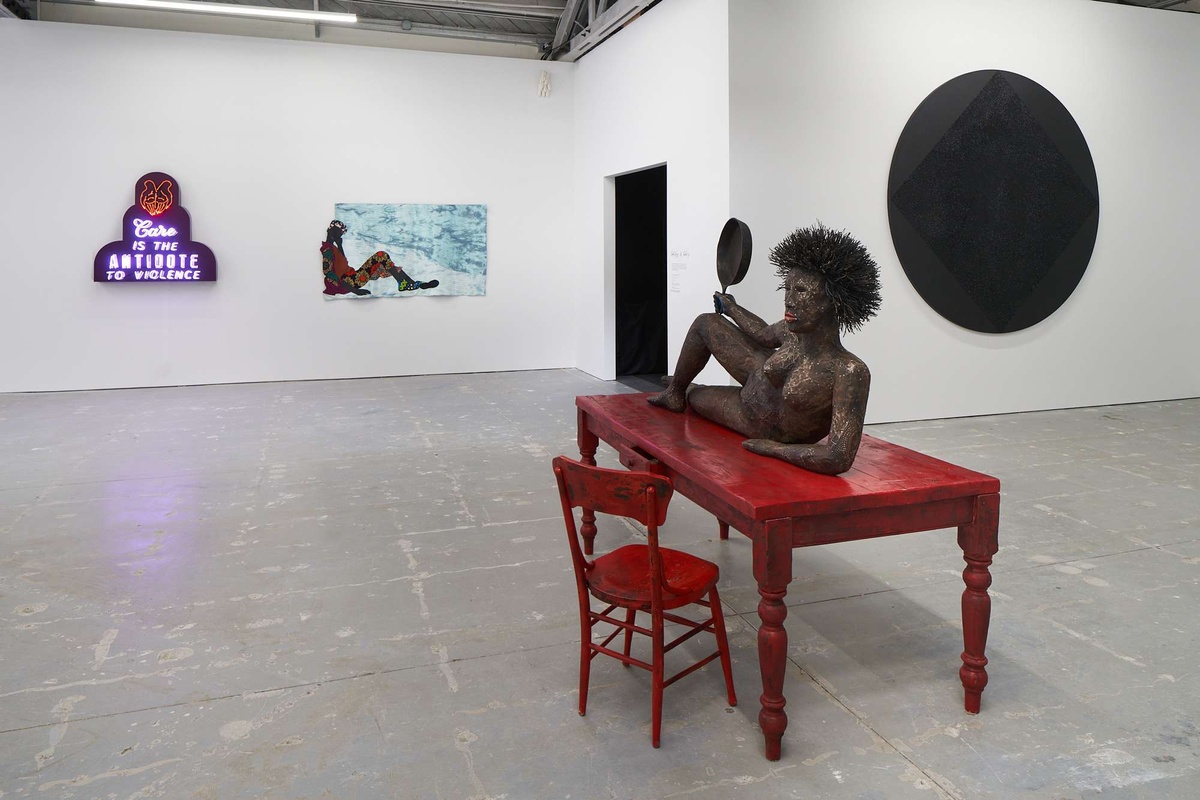Resting Our Eyes
Curated by Tahirah Rasheed and Autumn Breon
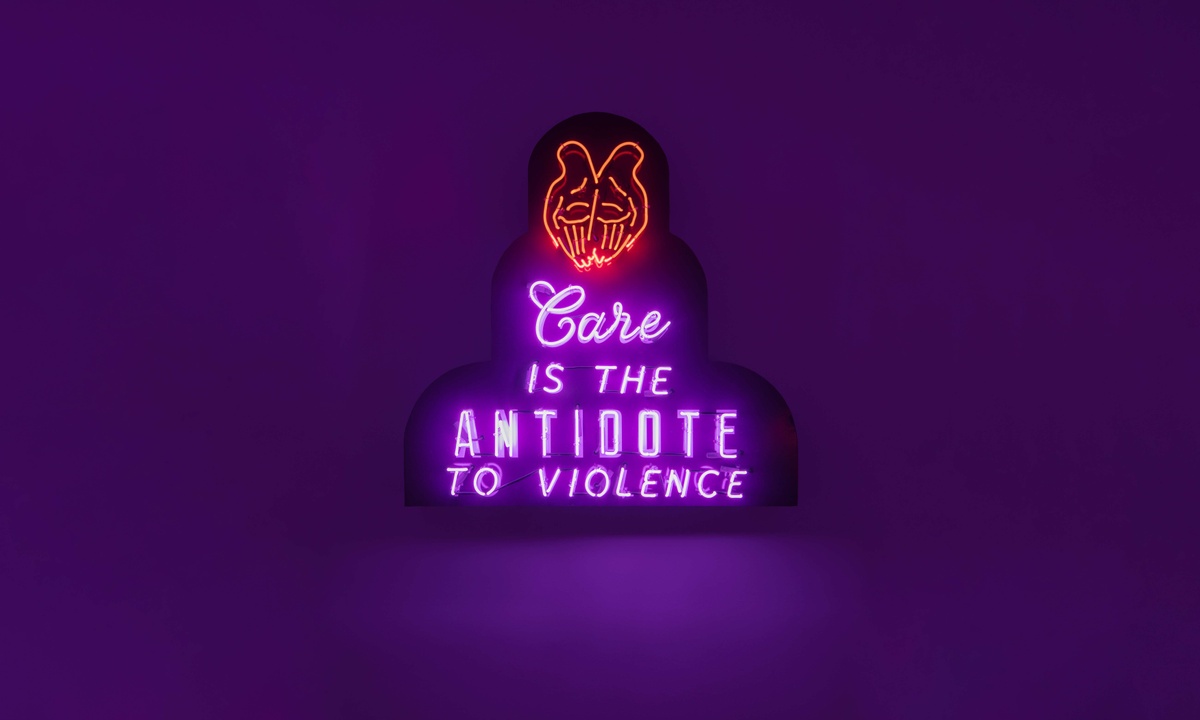

The Combahee River Collective believed that society would inevitably benefit from the success of Black women-centered movements. When we consider what technologies have already been used to dismantle systems of oppression on a personal level, leisure and adornment are often overlooked, but extremely present in everyday life. From silk bonnets, hair salons, to memories of our grandmothers in the quiet meditation of “resting their eyes,” these mechanisms were criminalized and developed against and amidst oppression. A 1918 ordinance in Greenville, South Carolina required Black women to be jailed or heavily fined if they could not prove “regular and useful employment.” In 1786, Governor Esteban Rodriguez Miro enacted a law requiring Black women in Louisiana to wear scarves that completely concealed their hair after he found free Black women’s fashion as displaying “too much luxury in their bearing.” Resting Our Eyes highlights these mechanisms for freedom and reminds us of the visual vocabulary of those practices. These reminders help us imagine and affirm beauty, rest, and self-expression as radical and necessary acts.
Focusing on the liberation and celebration of Black women through the lens of leisure and physical adornment, Resting Our Eyes features new and existing works from 20 multi-generational Black artists working across sculpture, photography, video, mixed media, painting, and textile. Through embodied experiences of space and temporality, spectrums of abstraction and representation, these artists contend with the limitations and failures of the colonial gaze by casting Black womxn at the center of their visions through leisure and adornment. Collectively, these works invite us to see Black womxn as fully realized and free.
Derrick Adams, Sadie Barnette, Traci Bartlow, Knowledge Bennett, LaKela Brown, Genevieve Gaignard, Ja'Tovia Gary, Lauren Halsey, Simone Leigh, Helina Metaferia, Ebony G. Patterson, Alison Saar, Lorna Simpson, Hank Willis Thomas, Lava Thomas, Mickalene Thomas, Adana Tillman, Leila Weefur, Carrie Mae Weems, and Deborah Willis.
Tahirah Rasheed is a multi-hyphenate convener of incredible people and ideas. She is an internationally traveled Disc Jockey, former lab assistant, biomedical researcher, published in medical journals, University of California Berkeley Alumni, neon artist and Co-owner and the Director of Community Engagement for Calexo, a sparkling cannabis beverage. She co-founded “See Black Womxn and in 2020 she was a YBCA 100 honoree. In 2022, she completed the 545 mile bicycle ride fundraiser for AIDS/Lifecycle. Tahirah lends her many talents and experiences to each venture in service of strengthening and delighting her community. Her work has been featured in The New York Times, Times Magazine and ARTnews magazine.
Autumn Breon curates and creates art to communicate ideas related to liberation, identity, and Diasporic memory. A graduate of Stanford University, Breon studied Aeronautics & Astronautics and researched aeronautical astrobiology applications for NASA. Breon’s examination of contemporary art throughout the African Diaspora began while living and working in South Africa and her work has been recognized by the Smithsonian Institution, Aspen Institute, TED, and the Obama Foundation.
Generous support for “Resting Our Eyes” is provided by the ICA SF founding donors and Phillips. Additional support is provided by our partners, Temescal Brewing.
